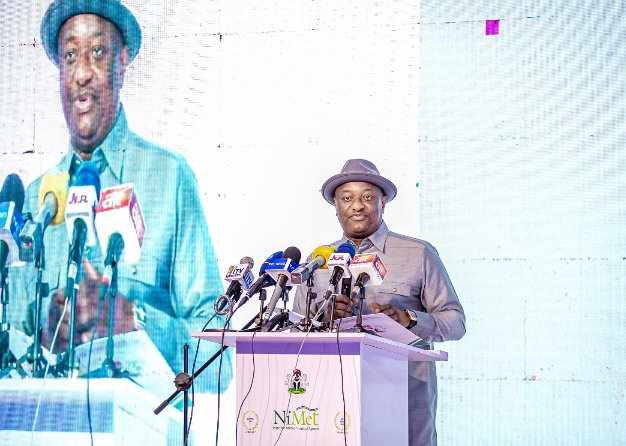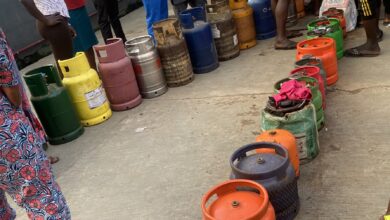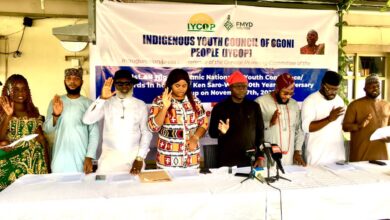2025 weather forecast: NiMet Predicts early rainfall across Nigeria

Goodluck E. Adubazi. Abuja.
The Nigerian Meteorological Agency – NiMet, predicts 2025 rainfall across parts of the country, just as the Minister of Aviation and Aerospace Development, Festus Keyamo SAN, on Tuesday, 4th February 2025 in Abuja, unveiled the 2025 Seasonal Climate Prediction (SCP) by the Nigerian Meteorological Agency (NiMet) to the public.
Themed ‘The Role of Early Warnings towards a Climate Resilient Aviation Industry for Sustainable Socio-Economic Development’, the SCP document predicts that most parts of the country will experience significant rainfall events at the beginning of 2025, and these rains will likely come before the onset.
The onset of rain is predicted to be delayed over the northern and central states of Plateau as well as parts of Kaduna, Niger, Benue, Nasarawa, Taraba, Adamawa, and Kwara. While early onset is expected over the southern states of Delta, Bayelsa, Rivers, Anambra, and sections of Oyo, Ogun, Osun, Ondo, Lagos, Edo, Enugu, Imo, and Ebonyi. The rest of the country is predicted to have a normal onset.
Standard-Times reported that The predicted end-of-rainy season compared to the long-term average indicates that parts of Zamfara, Katsina, Kano, Kaduna, Jigawa, Plateau, Bauchi, Borno, Yobe, Adamawa, Taraba, Niger, Kwara, Kogi, FCT, Ekiti, and Ondo states are expected to be early. A delayed end of the season is expected over parts of Kaduna, Nasarawa, Benue, Lagos, Kwara, Taraba, Oyo, Ogun, Cross River, Delta, Akwa Ibom, Ebonyi, Anambra, and Enugu states.
The minister disclosed that The SCP document is a critical tool for informed decision-making. “It offers insights into expected weather and climate patterns, equipping various sectors with the foresight needed to plan, mitigate risks, and harness opportunities. Agriculture, disaster risk management, health, marine operations, transport—and especially aviation—are among the many domains that will benefit from this invaluable resource and advisory”, he said.
The Permanent Secretary of the Ministry of Aviation and Aerospace Development, Dr. Ibrahim Abubakar Kana, mni, in his welcome address, said that the accompanying summary SCP document for policymakers, translations of the SCP into Hausa, Igbo, Yoruba and Pidgin languages, including a comprehensive report on the State of the Climate in Nigeria for 2024 underscore the Ministry’s and NiMet’s commitment to inclusivity, accessibility, and ensuring that the information reaches even the most remote communities. “Today’s session is particularly special because it represents our dedication to public engagement, ensuring that the knowledge we generate benefits communities across all 36 states of the federation and the FCT”, he said.
Consequently, The Director General and Chief Executive Officer of NiMet, Prof Charles Anosike, said that the Seasonal Climate Prediction (SCP) is perishable just like other weather and climate predictions and requires actors to uptake the information, utilize it, and provide feedback for evaluation and improvement of the document.
Professor Anosike expressed gratitude to the Chairman of the Senate Committee on Aviation, and the Chairman of the House Committee on Aviation Technology for their unrelenting support towards the progress of NiMet. “My appreciation goes to the Members of the Senate, and House of Representatives and Excellencies-Governors in attendance and/or their representatives for accepting our invitation and gracing this important event. NiMet relies on your constituencies and States for subsequent downscaling of the Seasonal Climate Prediction for maximum impact at the last mile”, he concluded.




